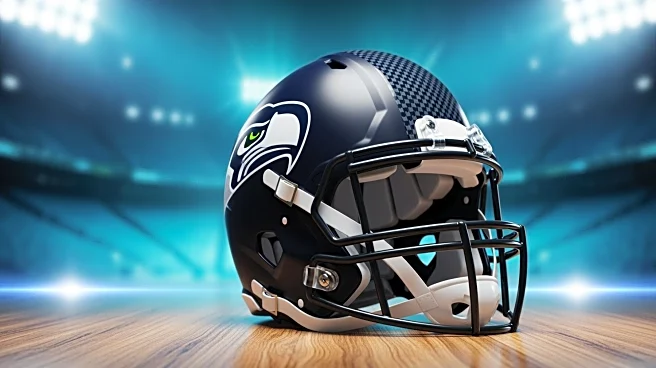What's Happening?
Brad Marchand, a former Boston Bruins player, returned to TD Garden for the first time as a visitor after being traded to the Florida Panthers. Marchand, who spent 16 seasons with the Bruins, was visibly emotional during a tribute video that highlighted
his career moments, including personal interactions with fans and his family. The video featured his middle child, Sawyer, wearing a Boston Bruins jersey, which deeply affected Marchand, leading to tears. Marchand expressed the overwhelming emotions tied to his memories and experiences in Boston, acknowledging the support and love he received from the fans throughout his career.
Why It's Important?
Marchand's return to Boston underscores the deep connection athletes can have with their teams and communities. His emotional response highlights the impact of sports figures on local culture and the personal bonds formed over years of dedication and performance. For the Bruins and their fans, Marchand's visit serves as a reminder of his contributions to the team's history and the shared experiences that define sports fandom. This event also illustrates the emotional complexities involved in player trades and the lasting legacy athletes leave behind, affecting both the team dynamics and fan relationships.
What's Next?
Marchand will continue his career with the Florida Panthers, where he aims to contribute to their success following his impactful tenure with the Bruins. The Bruins fans will likely continue to support Marchand, appreciating his past contributions while adjusting to his new role as an opponent. The emotional farewell may also influence future interactions between Marchand and the Boston community, potentially leading to special appearances or events celebrating his legacy. The Bruins will focus on building their team dynamics post-Marchand, integrating new players and strategies to maintain their competitive edge.
Beyond the Headlines
Marchand's return to Boston as a visitor highlights the broader implications of player trades in professional sports, including the emotional and cultural impact on both the athlete and the community. It raises questions about loyalty, identity, and the business aspects of sports, where personal connections can be disrupted by strategic decisions. This event may prompt discussions on how teams and leagues can better manage the emotional transitions for players and fans, ensuring that the human element of sports is respected alongside the commercial interests.














